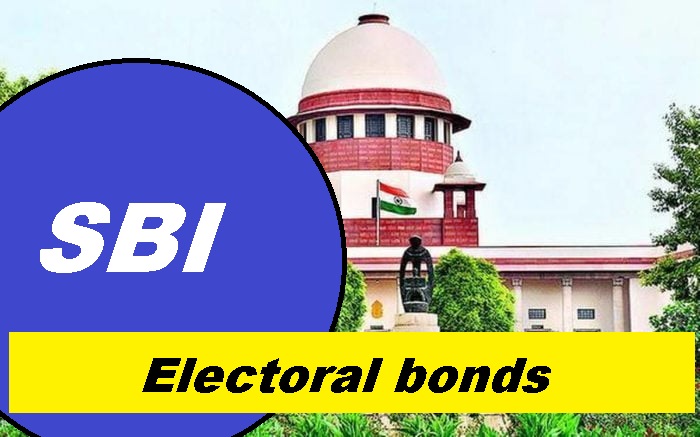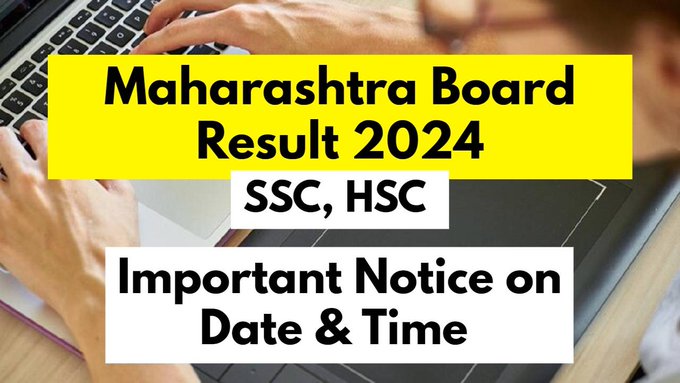
Electoral bonds are financial instruments introduced by the Government of India in 2018 as a means of making political donations more transparent. Electoral bonds were a way for political parties in India to receive funds anonymously. These bonds are essentially a mode of donating money to political parties. They can be purchased from specified branches of State Bank of India (SBI) and are available in multiples of Rs. 1,000, Rs. 10,000, Rs. 1,00,000, Rs. 10,00,000, and Rs. 1,00,00,000.
According to the press PIB release:- Electoral Bonds would have a life of only 15 days during which it can be used for making donation only to the political parties registered under section 29A of the Representation of the Peoples Act, 1951 (43 of 1951) and which secured not less than one per cent of the votes polled in the last general election to the House of the People or a Legislative Assembly. The Electoral Bonds under the Scheme shall be available for purchase for a period of 10 days each in the months of January, April, July and October, as may be specified by the Central Government. An additional period of 30 days shall be specified by the Central Government in the year of the General election to the House of People.
The Electoral Bond(s) shall be encashed by an eligible political party only through a designated bank account with the authorised bank.
One of the key features of electoral bonds is that the identity of the donor is kept anonymous. This anonymity is intended to protect donors from potential backlash or retaliation and to encourage more donations to political parties. However, critics argue that this anonymity undermines transparency in political funding, as it makes it difficult to trace the source of donations.
Let’s understand how electoral bonds works:
Issuance: Electoral bonds are issued by authorized banks in specific denominations ranging from as low as 1,000 rupees to as high as 1 crore rupees. These bonds are similar to banknotes but are issued specifically for making donations to political parties.
Purchase: Any individual or organization, whether Indian or foreign, can purchase electoral bonds from designated branches of authorized banks. The purchaser must fulfill the Know Your Customer (KYC) requirements, providing necessary identification and other details.
Donation: Once purchased, the electoral bonds can be donated to registered political parties. The bonds can be directly deposited into the party’s designated bank account within a specified timeframe.
Redemption: Political parties can encash the electoral bonds within a prescribed period. They can redeem the bonds through their designated bank accounts. However, the parties can only encash these bonds through a designated bank account, ensuring traceability and transparency.
Who purchases electoral bonds?
Electoral bonds can be purchased by any individual or organization, whether Indian or foreign, from designated branches of authorized banks. These bonds are available in specific denominations ranging from as low as 1,000 rupees to as high as 1 crore rupees. To buy electoral bonds, the purchaser must fulfill the Know Your Customer (KYC) requirements, providing necessary identification and other details. Once purchased, these bonds can be donated to registered political parties. The anonymity of donors is maintained, meaning the identity of the purchaser is not disclosed publicly.
However, the government and authorized banks have access to this information. Despite criticisms regarding transparency and potential misuse, electoral bonds remain a legal means for individuals and organizations to contribute to political parties in India.
Electoral bonds donation data updates:
According to a report by The Indian Express, the Bharatiya Janata Party (BJP) has emerged as the top recipient of electoral bonds since the inception of the scheme. The data released by the Election Commission reveals that between March 2018 and May 22, 2019, the BJP got the highest Rs 3,941.57 crore in electoral bonds. A significant portion of this amount, approximately 77.4%, flowed into the party’s coffers in the months leading up to the Lok Sabha polls in 2019.
During the period of November-December 2018, when Assembly polls were held in states like Karnataka, Chhattisgarh, Madhya Pradesh, Rajasthan, Telangana, and Mizoram, the BJP received Rs 330.41 crore in electoral bonds. Subsequently, in January 2019, the party redeemed bonds worth Rs 173 crore. The trend continued with a surge in redemptions in March, April, and May 2019, coinciding with the announcement and conduct of the Lok Sabha elections.
Interestingly, data indicates that Kolkata accounted for a significant portion (27%) of the BJP’s total collections during this period, highlighting the party’s growing focus on the state. The BJP also received substantial contributions from Mumbai (38%) and New Delhi (17%), while even from cities like Hyderabad, where the party has minimal presence, it managed to redeem a significant amount of electoral bonds worth Rs 106.26 crore. These figures underscore the BJP’s financial strength and its strategic outreach efforts across various regions of the country.
you may also read:
The list you provided outlines the contributions made by various individuals and organizations through electoral bonds. Here’s a breakdown of the contributions:
- lottery company Future Gaming and Hotel Services Pvt Ltd :Rs 509 crore
- Lakshmi Niwas Mittal (ArcelorMittal): ₹35 crore
- Laxmidas Vallabhdas Merchant (Reliance Life Sciences): ₹25 crore
- Rahul Bhatia (IndiGo): ₹20 crore
- Inder Thakurdas Jaisinghani (Polycab Group of Companies): ₹14 crore
- Rajesh Mannalal Agarwal (Ajanta Pharma Limited): ₹13 crore
- Harmesh Rahul Joshi & Rahul Jagannath Joshi (Om Freight Group of companies): ₹10 crore each
- Kiran Mazumdar Shaw (Biocon): ₹6 crore
- Indrani Patnaik: ₹5 crore
- Sudhakar Kancharla (Yoda Group): ₹5 crore
- Abhrajit Mitra (Searock Infraproject Private Limited): ₹4.25 crore
- Sarojit Kumar Dey (JD Agro Development Private Limited): ₹3.4 crore
- Dilip Ramanlal Thacker (Samudra Real Estate Private Limited; Jade Minerals & Mines Private Limited): ₹3 crore
- Prakash Balwant Mengane (Shreenath Stapatya India Private Limited): ₹3 crore
- Nirmal Kumar Bathwal (Penguin Trading & Agencies Limited): ₹2 crore
- India Cements at Rs 10 crore,
- Lakshmi Machine Works (LMW) at Rs 1.50 crore,
- RAMCO Cements at Rs 5 crore,
- Mega Infrastructure at Rs 20 crore,
- Apollo at Rs 1 crore,
- Triveni at Rs 5 crore,
- Birla at Rs 1 crore,
- IRB at Rs 2 crore.
Top donors were under ED and Income Tax Department scanner:
- According to reports by HT, Future Gaming and Hotel Services PR emerged as the largest donor to political parties through electoral bonds, contributing a total of ₹1,368 crore. The company’s Managing Director, Santiago Martin, faced scrutiny from the Enforcement Directorate (ED) in May 2023, with searches conducted at his Chennai residence and the company’s business premises in Coimbatore under the Prevention of Money Laundering Act (PMLA).
- A year earlier, in April 2022, the ED had attached movable assets worth ₹410 crore in a lottery scam case involving the company and its subsidiaries.Remarkably, just five days after the ED searches, Future Gaming made a substantial purchase of electoral bonds amounting to ₹100 crore, marking one of their largest transactions on a single date.
- It’s noted that of the ₹1,368 crore worth of bonds purchased by the company, 50% were acquired before the ED searches and the remaining 50% were obtained after the searches. This sequence of events highlights the intersection of political funding through electoral bonds and ongoing legal scrutiny faced by certain entities, raising questions about the transparency and integrity of the electoral bond system.
- Keventer Food Park Infra Ltd., MKJ Enterprises Ltd., and Madanlal Ltd.: These three companies, registered at the same address in Kolkata and sharing a common director, Siddharth Gupta, collectively donated about ₹573 crore.
- Notably, Keventer Food Park Infra Ltd. purchased bonds worth ₹195 crore in three batches between April and May 2019,
- Madanlal Ltd. bought bonds worth ₹185 crore between May 8 and 10, 2019.
- Keventer Agro, affiliated with these companies, faced controversy following a public interest litigation (PIL) regarding its acquisition of Metro Dairy from the West Bengal government in 2017.
- Yashoda Super Specialty Hospital Group: The Hyderabad-based hospital group, subject to Income Tax department searches in December 2020, donated ₹162 crore in multiple tranches from October 2021 to October 2023.
- Aurobindo Pharma: The company’s director, Sarath Reddy, was arrested by the Enforcement Directorate (ED) in November 2022 for alleged involvement in irregularities related to the scrapped liquor policy of the Delhi government. Despite this, the company purchased electoral bonds worth ₹52 crore between April 2021 and November 2023, with ₹30 crore acquired after Reddy’s arrest.
- Shirdi Sai Electricals Limited: Following Income Tax searches on its premises in December 2023, the company’s factory premises in Kadapa and officials’ residences in Hyderabad were raided. Shirdi Sai Electricals had purchased electoral bonds worth ₹40 crore on January 11, 2024.
- Kalpataru Projects International: This real estate development firm faced Income Tax searches in August 2023, targeting its premises and directors/executives’ residences. Between April and October 2023, the company purchased electoral bonds worth ₹25.5 crore.

